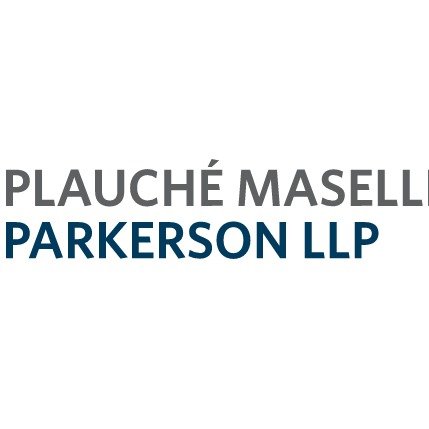Best Sexual Harassment Lawyers in United States
Share your needs with us, get contacted by law firms.
Free. Takes 2 min.
Or refine your search by selecting a city:
List of the best lawyers in United States
About Sexual Harassment Law in United States
Sexual harassment law in the United States is designed to protect individuals from unwanted and inappropriate behavior of a sexual nature. It is primarily governed by Title VII of the Civil Rights Act of 1964, as well as other federal and state laws. Sexual harassment can occur in numerous settings, including workplaces, schools, and public spaces, and may include behaviors such as unwanted sexual advances, requests for sexual favors, and other verbal or physical harassment of a sexual nature. The law recognizes two main types of sexual harassment: quid pro quo and hostile work environment. Victims of sexual harassment have the right to seek legal redress through the proper channels.
Why You May Need a Lawyer
Individuals may require legal help in sexual harassment cases for various reasons, including understanding their rights, navigating the complex legal system, and achieving the best possible outcome. Common situations where legal assistance may be needed include:
- Being a target of unwanted sexual advances at work.
- Experiencing a hostile work environment due to pervasive or severe conduct.
- Facing retaliation after reporting harassment.
- Need to negotiate settlements or compensation for damages arising from harassment.
- Assistance in filing a complaint with the Equal Employment Opportunity Commission (EEOC) or other relevant bodies.
Local Laws Overview
While federal laws provide a baseline, local laws can vary significantly in their scope and protections related to sexual harassment. Key aspects include:
- Many states have their own human rights acts which provide additional protections beyond federal laws.
- Certain states have expanded the definition of workplaces to include non-traditional employment situations, such as freelancers and contractors.
- Different states may have specific statutes of limitations for bringing forward sexual harassment claims.
- Some cities and localities may have specific ordinances to address sexual harassment within their jurisdiction.
Frequently Asked Questions
What constitutes sexual harassment?
Sexual harassment includes unwelcome sexual advances, requests for sexual favors, and other verbal or physical harassment of a sexual nature.
Is sexual harassment illegal in every state?
Yes, sexual harassment is illegal in every state under federal law, and most states have additional laws providing further protections.
Can sexual harassment occur outside of the workplace?
Yes, sexual harassment can occur in various settings, including schools and public places, not just workplaces.
What is the difference between quid pro quo and hostile work environment harassment?
Quid pro quo harassment occurs when a job benefit is conditioned on sexual favors. Hostile work environment occurs when harassment creates an intimidating or abusive environment.
How do I file a complaint about sexual harassment?
You can file a complaint with the Equal Employment Opportunity Commission (EEOC) or a corresponding state agency within specified time limits after the incident.
What should I do if I am being harassed?
Document the harassment, report it to your employer or appropriate authority, and seek legal advice.
Can I be fired for reporting sexual harassment?
It is illegal for employers to retaliate against employees for reporting sexual harassment. Legal recourse is available for retaliation claims.
What kind of compensation can victims of sexual harassment receive?
Compensation may include back pay, reinstatement, damages for emotional distress, attorney fees, and punitive damages.
How long do I have to report sexual harassment?
Time limits can vary, but typically a claim must be filed with the EEOC within 180 to 300 days from the date of the incident.
Do I need a lawyer to file a sexual harassment claim?
While it is not mandatory to have a lawyer, having one can be beneficial for navigating the complexities of the legal process and maximizing the chances of a favorable outcome.
Additional Resources
- The Equal Employment Opportunity Commission (EEOC) offers guidance and assistance for filing complaints.
- State Human Rights Commissions provide resources tailored to local laws.
- National Women’s Law Center offers support and advocacy resources.
- The American Civil Liberties Union (ACLU) provides legal advocacy and information on civil rights violations.
- Legal aid organizations can offer pro bono legal services for those who qualify.
Next Steps
If you or someone you know is experiencing sexual harassment and requires legal assistance, consider taking the following steps:
- Document all incidents of harassment, including dates, times, and descriptions.
- Report the harassment to your employer or appropriate authority within your organization.
- Contact the EEOC or your local equivalent to understand your rights and file a claim.
- Consult a lawyer experienced in sexual harassment cases to help navigate the legal process and advocate on your behalf.
- Explore additional support from counseling services or professional networks focused on workplace safety and health.
Lawzana helps you find the best lawyers and law firms in United States through a curated and pre-screened list of qualified legal professionals. Our platform offers rankings and detailed profiles of attorneys and law firms, allowing you to compare based on practice areas, including Sexual Harassment, experience, and client feedback.
Each profile includes a description of the firm's areas of practice, client reviews, team members and partners, year of establishment, spoken languages, office locations, contact information, social media presence, and any published articles or resources. Most firms on our platform speak English and are experienced in both local and international legal matters.
Get a quote from top-rated law firms in United States — quickly, securely, and without unnecessary hassle.
Disclaimer:
The information provided on this page is for general informational purposes only and does not constitute legal advice. While we strive to ensure the accuracy and relevance of the content, legal information may change over time, and interpretations of the law can vary. You should always consult with a qualified legal professional for advice specific to your situation.
We disclaim all liability for actions taken or not taken based on the content of this page. If you believe any information is incorrect or outdated, please contact us, and we will review and update it where appropriate.
Browse sexual harassment law firms by state in United States
Refine your search by selecting a state.

















